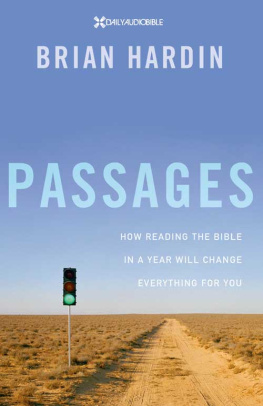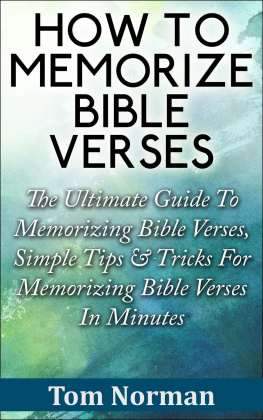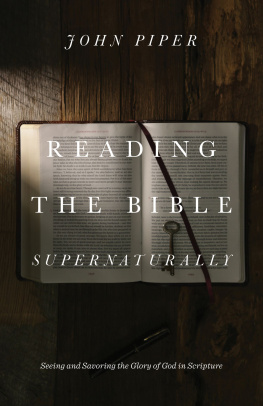Copyright 2022 by Rev. Randolph Kesler
All rights reserved. No part of this publication may be reproduced, distributed, or transmitted in any form or by any means, including photocopying, recording, or other electronic or mechanical methods, without the prior written permission of the copyright owner and the publisher, except in the case of brief quotations embodied in critical reviews and certain other noncommercial uses permitted by copyright law. For permission requests, write to the publisher, addressed Attention: Permissions Coordinator, at the address below.
Author Reputation Press LLC
45 Dan Road Suite 5
Canton MA 02021
www.authorreputationpress.com
Hotline: 1(888) 821-0229
Fax: 1(508) 545-7580
Ordering Information:
Quantity sales. Special discounts are available on quantity purchases by corporations, associations, and others. For details, contact the publisher at the address above.
Printed in the United States of America.
ISBN-13: | Softcover | 979-8-88514-923-5 |
eBook | 979-8-88514-924-2 |
Library of Congress Control Number: 2022910623
Contents
A pastor who continues to read and study the Word of God following his or her graduation from seminary, ordination, and installation into a pastorate develops certain themes and interests which cannot be well-developed without some time away from the rigorous schedule of pastoral duties. I have found across my years of ministry that I have introduced several topics in preaching and teaching which beckon me to explore them more deeply.
I intend this study to be devotional for the reader. As I reflect on these passages of Scripture, I invite you to reflect in the Spirit on the written Word. I invite you to be surprised by the wondrous beauty and the divine wisdom of God as you submit yourself to trusting the truthfulness of the Word, the ultimate truth therein presented, whereby you and I may enjoy blessing for the living of our days and security in Christ for our journeys throughout eternity in the presence of the Lord and his people in the redeemed creation.
I lay no claim to superior insight in the Word, for I do not possess that. I do possess what the Lord has given me in the course of my years of study and obedience to him.
I have no doubt that in the next few pages, you may be scratching your intellectual head wondering what in the world is this man talking about. I reflect on some of the same subjects repeatedly, not because I dont have interest in anything else but because the Spirit seems to keep me focused on these at this point.
So, my intention for the use of this document is for you to think, to study, to hear what I have said based on the scripture passage considered, asking the Lords instruction and wisdom for you as you read. This permits the reader to begin the practice of reflecting not necessarily on what I have written but on the text from which I have taken my thoughts. By this means, you will give the Spirit time to speak to you, to inform you, and lead you.
My second intention is to fill a void in the world of devotional readings. I hope this can be enjoyed and may be beneficial to the local pastor as well as for the devoted Christian, both of whom on a regular basis sit in their prayer closets and seek a warmer and firmer relationship with their heavenly Father.
I call this deeper exploration reflecting. Reflecting is purposefully chosen because as a present participle, it expresses an action that continues from the present into the future as opposed to a past completed action. Had I wanted to express the past action of my study of the Christian Scriptures, I would have used the noun reflection.
This study will contain reflections, to be sure, but reflecting means to me that the study of Scripture is an ongoing action carried out by a committed Christian who shows his or her love for the Word of God by the action of continually reflecting upon the Word either in concentrated study or as one moves throughout her or his day with a certain text for consideration.
Secondly, it is my experience that as I have given myself to the study of a passage of scripture, the Spirit continues to speak to me informing me of new truths and applying a variety of approaches to the passage considered. In other words, the study of a particular passage in the written Word never ends for the preacher or teacher or Christian who will remain open continually in a spirit of expectation. I am reminded of the pastor who, over forty years of ministry, had preached his way through the Bible; therefore, I am told he retired because he had said all he could say. I dont find that approach a satisfactory one for me. As I work on sermons from week to week, I am often adding to or reemphasizing some point in my mind even up to and including the moment of preaching.
I have friends in the church who tell me they no longer need to study a certain biblical book because they studied it once, and they understand it. Such an approach to the biblical text indicates a rigid and fixed view as though the Spirit of God has no further word to say or message to bring to inform our living as time passes. This attitude hampers Christian growth and hardens the believer to the fresh winds of the Spirit. It reminds me of having eaten steak or salad as a child and determining that, because I have enjoyed this one steak or one salad, I have no further need to taste another because any subsequent steak or salad will be the same.
So, for me, reflecting indicates the ongoing, continual interaction of the child of God with the Word of God in sensitivity to the Spirit of God. It is certainly not a one-time experience but a repeated, recurrent, and persistent turning of oneself to the Lord for inspiration and guidance, instruction and authority for ones life.
As the people of God under the leadership of Joshua prepared to take the land of Canaan as their promised inheritance to Abraham and his descendants, the Lord gave these instructions to Joshua, Do not let this Book of the Law depart from your mouth; meditate on it day and night, so that you may be careful to do everything written in it. Then you will be prosperous and successful (Joshua 1:8).
So meditating carries the idea of reflecting, the act of thoughtful deliberation with the implication of speaking to oneself (NIV Exhaustive Concordance, 2047, Goodrick and Kohlenberger III). Thoughtful deliberation to inform oneself is the foundational, faithful approach of any serious follower of Jesus Christ regarding their approach to the Holy Scripture.
We find an additional shade of meaning for meditating in Psalm 48:9, Within your temple, O God, we meditate on your unfailing love. This different Hebrew word (NIV Exhaustive Concordance , 1948, Goodrick and Kohlenberger III)) includes the desire of the medita-tor to incorporate into her or his life the idea or ideal being contemplated (e.g., in this case, Gods unfailing love).
Therefore, in these few pages, I invite your contemplation of Scripture with me. These thoughts, of course, are not mine alone, for what I think and feel and do is the end result of a lifetime of studying Gods Word in conjunction with the writings and teachings of others. I am gratified if the Spirit has given me any insight in these passages which will open to the reader some clearer understanding and deeper Christian growth.










